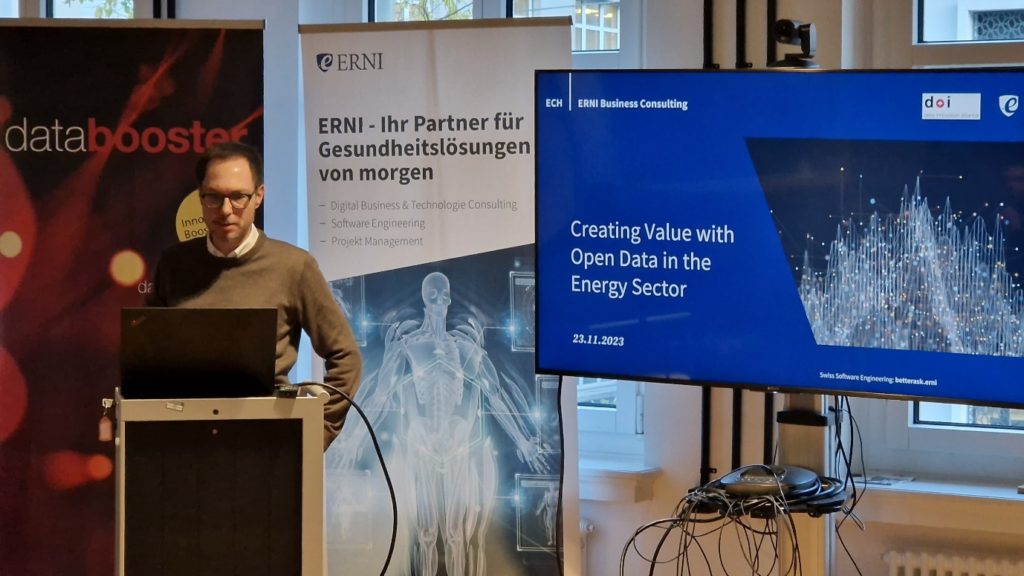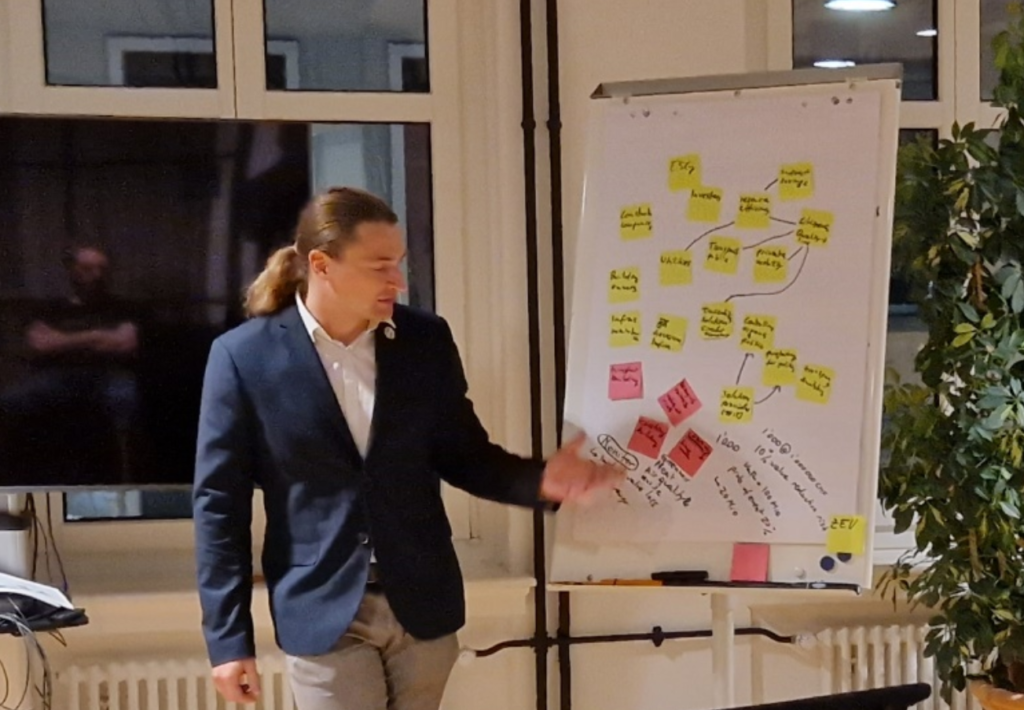
Open Data Value Creation in the Energy Sector
(by J. Meierhofer, ZHAW and R. Leiterer, data innovation alliance)
On November 23, 2023, ERNI in Zurich hosted this workshop co-organized by the GEOSummit, the data innovation alliance and the SGPF. The event was a success, with 23 participants from industry, academia, and governmental organisations and with different skills and interests joining the workshop. Jürg Meierhofer (ZHAW) was our moderator and guaranteed a result-oriented and structured course of the workshop.

The workshop dealt with the topic of value generation with open data – with an initial focus on developments in the field of decentralized energy supply.
Creating value based on open data is difficult, as topics such as harmonization of data formats, automatic data lineages or the standardization of data linkage processes are technically challenging and also not unproblematic from a regulatory point of view. But even supposedly simpler steps such as contextualized data search and raising awareness of the availability of open data in general have only been implemented to a very limited extent.
Related to the energy topic mentioned above this includes, for example, the analysis of consumption data collected by sensors and smart meters – or, more generally, exploiting the potential of energy management systems due to the increasing electrification. Especially regarding energy savings (e.g. usage-specific lighting scenarios), these so-called IoT recommender systems have the potential to deliver great added value, for the respective households but also for the electricity providers (e.g. regarding dynamic tariffs). in this context, we discussed topics such as data protection, data infrastructure and data management, open platform ideas for data sharing and trading and the smart services that could be built on them.
In the hands-on session the participants worked in teams to solve these real-world problems with open data. Each team was given a predefined problem related to open data, such as smart grid, smart city, or gamification. The teams had to analyse the problem, identify the best opportunities and ideate the most viable solution. They also had to present their ideas, solutions, roadmaps or action plans to the judges and the audience. The workshop followed the double diamond design approach.

In a first round, the participants explored the problem space by mapping the ecosystem and the relevant actors with their jobs and pains. In the second round, they discussed how these actors can be supported by data driven solutions and services, including quantitatively estimating the business potential of the solution approaches.
The event was a great opportunity to network with other data enthusiasts, learn from experts, showcase creativity and innovation skills, and have fun. The event was followed by a networking session, where the participants exchanged feedback, insights, and contacts.